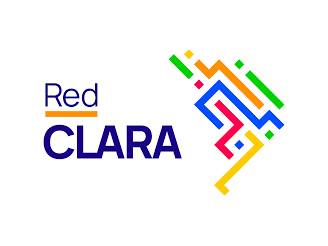
Patagonia Project connects southern tip of continent with R&E Networks
The Southern Macrozone of Chile is one third of the country’s surface and holds significant scientific potential with both national and global impact. It plays a strategic role in addressing the Climate Crisis and possesses global comparative advantages (Ice Fields, Antarctica, subantarctic and pristine territory). However, until recently, it was one of the few geographical areas on the planet disconnected from Global Research and Education Networks.
In response to this need, the Chilean National Research and Development Agency (ANID) and the Chilean NREN, REUNA, joined forces to execute the Patagonia Project. This initiative aims to meet the connectivity requirements of knowledge-generating institutions in the Southern Macrozone of Chile and transform the region into a hub for global development and research.
The project has an initial investment of around 900,000 US dollars and involves the implementation of two Points of Presence (PoP) for REUNA in the cities of Coyhaique and Punta Arenas, respectively, to connect them to the REUNA backbone in Puerto Montt. These new segments involve deploying 1,310 km of network, representing a 42% increase in the territorial coverage of the current digital infrastructure of the Chilean NREN.
The potential beneficiaries of this project include all universities, vocational training centers, and research centers present in the Chilean Patagonia. Additionally, there is an expectation to connect international scientific agencies and centers based in Punta Arenas for their aerospace programs.
In September 2022, the inauguration of the first PoP took place in the city of Coyhaique, and the implementation of the node in Punta Arenas is scheduled for the first trimester of 2024.
“The Patagonia Project is the first step for the Aysén and Magallanes regions to have a digital infrastructure dedicated exclusively to science and education, interconnected nationally and internationally, that consolidates the Southern Macrozone as a pole of development and creation of global knowledge. The next stage of this dream is to integrate the Patagonia network with other initiatives to connect the Antarctic territory with the rest of the world through Chile,” said Paola Arellano, Executive Director of REUNA.
Connectivity to Antarctica
REUNA at the Chilean level and RedCLARA at the Latin American level are working intensely to promote and establish connectivity to Antarctica through Punta Arenas. Thanks to the Patagonia Project, this city will host the southernmost Point of Presence (PoP) on the planet in terms of connectivity for science and education, and it will be the closest city to Antarctica. Moreover, national Antarctic programs from more than 20 countries use Punta Arenas as the gateway to the continent, more than any other city in the world.
For this reason, it is the chosen location for the construction of the future International Antarctic Center (CAI), designed to promote knowledge and dissemination of the white continent. It will also facilitate scientific research, contribute to the global positioning of the Magallanes capital as the main “gateway” to Antarctica, and provide logistical support for future polar expeditions. The project is valued at over 80 million dollars and is driven by the Regional Government of Magallanes and Chilean Antarctica, the Ministry of Public Works, and the Chilean Antarctic Institute.
On this strategic path for the development of global science, the intentions of the European Union and Chilean entities to support this process have already been expressed. Both networks are working on a plan to make this action a reality.
For more information please contact our contributor(s):


